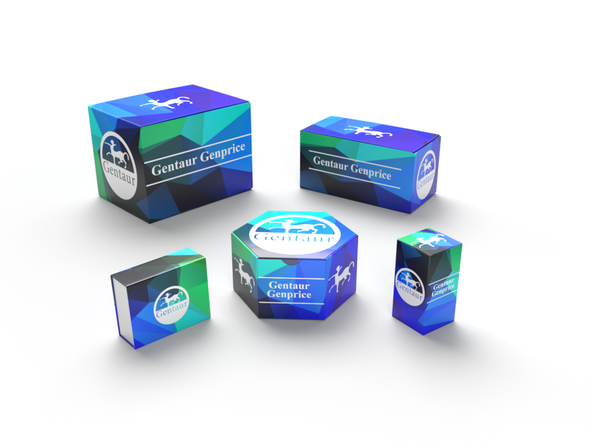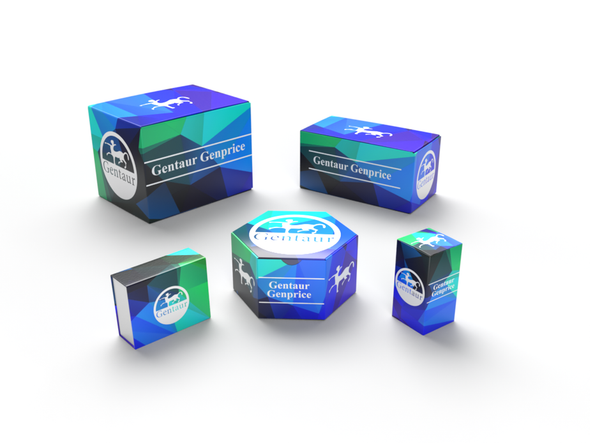740
Human Beta-Amyloid precursor protein (B-APP) ELISA Kit | AE62982HU
- SKU:
- 740-AE62982HU
- Availability:
- Usually ships in 5 working days
Description
Human Beta-Amyloid precursor protein (B-APP) ELISA Kit | AE62982HU | Gentaur UK, US & Europe Distribution
Species Reactivity: Human (Homo sapiens)
Abbreviation: B-APP
Alternative Name: N/A
Application: ELISA
Range: 0.312-20 ng/mL
Sensitivity: 0.118 ng/mL
Intra-Assay: ≤4.7%
Inter-Assay: ≤7.2%
Recovery: 1, 02
Sample Type: Serum, Plasma, Other biological fluids
Detection Method: Sandwich
Analysis Method : Quantitive
Test Principale: This assay employs a two-site sandwich ELISA to quantitate B-APP in samples. An antibody specific for B-APP has been pre-coated onto a microplate. Standards and samples are pipetted into the wells and anyB-APP present is bound by the immobilized antibody. After removing any unbound substances, a biotin-conjugated antibody specific for B-APP is added to the wells. After washing, Streptavidin conjugated Horseradish Peroxidase (HRP) is added to the wells. Following a wash to remove any unbound avidin-enzyme reagent, a substrate solution is added to the wells and color develops in proportion to the amount of B-APP bound in the initial step. The color development is stopped and the intensity of the color is measured.
Product Overview: APLP1 encodes a member of the highly conserved amyloid precursor protein gene family. The encoded protein is a membrane-associated glycoprotein that is cleaved by secretases in a manner similar to amyloid beta A4 precursor protein cleavage. This cleavage liberates an intracellular cytoplasmic fragment that may act as a transcriptional activator. The encoded protein may also play a role in synaptic maturation during cortical development. Alternatively spliced transcript variants encoding different isoforms have been described.APLP1 and APLP2 double knockout mice display hypoglycemia and hyperinsulinemia indicating that these two proteins are important modulators of glucose and insulin homeostasis.
Stability: The stability of ELISA kit is determined by the loss rate of activity. The loss rate of this kit is less than 5% within the expiration date under appropriate storage condition. The loss rate was determined by accelerated thermal degradation test. Keep the kit at 37°C for 4 and 7 days, and compare O.D.values of the kit kept at 37°C with that of at recommended temperature. (referring from China Biological Products Standard, which was calculated by the Arrhenius equation. For ELISA kit, 4 days storage at 37°C can be considered as 6 months at 2 - 8°C, which means 7 days at 37°C equaling 12 months at 2 - 8°C) .










